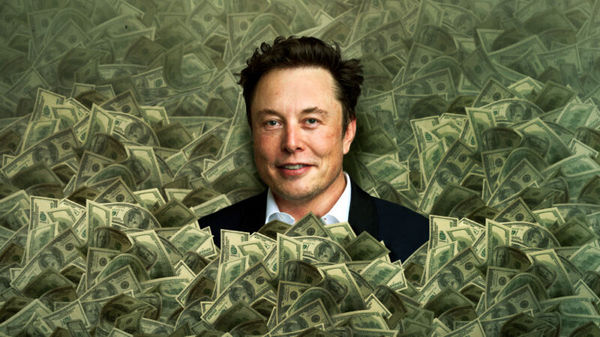Material World – Who voted for Elon Musk?
According to mainstream economic theory as taught in schools and universities, the capitalist is fully entitled, by definition, to whatever they receive, be this modest or spectacularly large; they bore the risk by investing ‘their’ capital and so fully deserve the return it yields – a risk, nonetheless, that they can mitigate by expanding their already diverse investment portfolio and by taking considerable comfort in the legislative convenience afforded by the Law of Limited Liability.
The risk to the worker, on the other hand – whether we are talking about death or injury as a result of industrial accidents or the prospects of being made unemployed should the business close down as a consequence of entrepreneurial miscalculation – may not even be acknowledged, let alone ‘rewarded’. Our worker, unable to pay that medical bill or make the next mortgage repayment, might well find themselves, unlike our capitalist, homeless and on the street.
Risk per se may well be part of life but the kind of risks we are talking about here should, you would have thought, be dispensed with or pared down to a bare minimum – not glorified as that mindless machismo or short-sighted and selfish folly we associated with a so-called ‘rugged individualism’. The problem is that this is not possible today. ‘Risk’ in this latter sense is a built-in attribute of a ferociously competitive market economy that is itself simply taken for granted as the necessary context of all entrepreneurial decision-making.
The dogma that the capitalist provided the capital that got the production process going not only fails to address the question of where that capital came from in the first place; it also seeks to justify the return they receive on the grounds that they have to cover the operating costs of their business – unlike their employees who, happily, do not have to bear the heavy burden this entails.
But this overlooks that matter of where our capitalist derives the wherewithal to cover these costs – not to mention the fact that any inventory or equipment they may purchase out of this money remains, legally, entirely theirs. Such inventory or equipment was, needless to say, not produced by them – although at times you might be forgiven for thinking from the pronouncements of apologists for capitalism that that is precisely what happened. The issue, however, is not what contribution our capitalist made to production but, rather, where they got the money to make that contribution in the first instance.

An entrepreneur who owns a business that produces a product for which there is brisk demand, might be said to be ‘rewarded’ by society, according to this argument, in the sense that they are thereby enabled to become extremely rich by attentively responding to, and serving, this demand. Society – consumers in general – as it were, passes judgement on this product in the act of buying it. Their approval in the form of a market purchase is purportedly tantamount to a desire to reward our entrepreneur for making this product available on the market.
However, it is not difficult to see why such an argument (which is raised with surprising frequency) is little more than a specious and self-serving rationalisation. To begin with, the product itself, from its conception and design through to its manufacture, marketing and sale, is likely to involve the labour of a great many workers employed or subcontracted by our entrepreneur. Even so, these, unlike our entrepreneur, are not likely to find themselves suddenly enriched on account of their contribution to making this highly desirable product available to the public.
On the contrary, the entire revenue from the sale of this product will go to our capitalist entrepreneur, in the first instance, simply by virtue of their ownership of the business itself. What they then personally end up with in money terms, after deducting from that revenue all those production costs, including the wages bill, is a residual magnitude which can vary depending on other factors – including, of course, how much, or how little, they pay their workforce.
How the social product comes to be divided up has little or nothing to do with the public’s opinion of our entrepreneur or the putative role they perform. More than likely their existence will be completely unknown to consumers. These consumers are not concerned with ‘rewarding the producers’ for producing this product, let alone the entrepreneur who has employed these producers to produce it. That is a completely unwarranted imputation. All that the public is concerned with is the desirability and price of the product in question.
There is simply no way of effectively testing this proposition anyway, since the very valuations the public are supposedly making with respect to these different occupations in society (and the differential incomes they command) are themselves expressed through, and subject to, the limitations of, ‘effective demand’ – that is, demand backed up by purchasing power.
What this means is that even if we grant the argument that the public are, as it were, ‘voting’ for our entrepreneur, or their business, with each pound, dollar or whatever spent counting as a vote cast, it is still the case (to continue with this metaphor) that some have vastly more votes at their disposal compared to others and, indeed, that many of these others may as well be considered completely disenfranchised as far as a great many products in the market are concerned. That is to say, their ‘economic votes’ are prevented from being expressed in the determination of these products’ prices by their inability to afford these products in the first instance.
In any case, what is being asserted is a completely untestable proposition. Who decided – or voted for – Elon Musk to become the richest individual in the world? The answer is, of course – no one.
ROBIN COX
